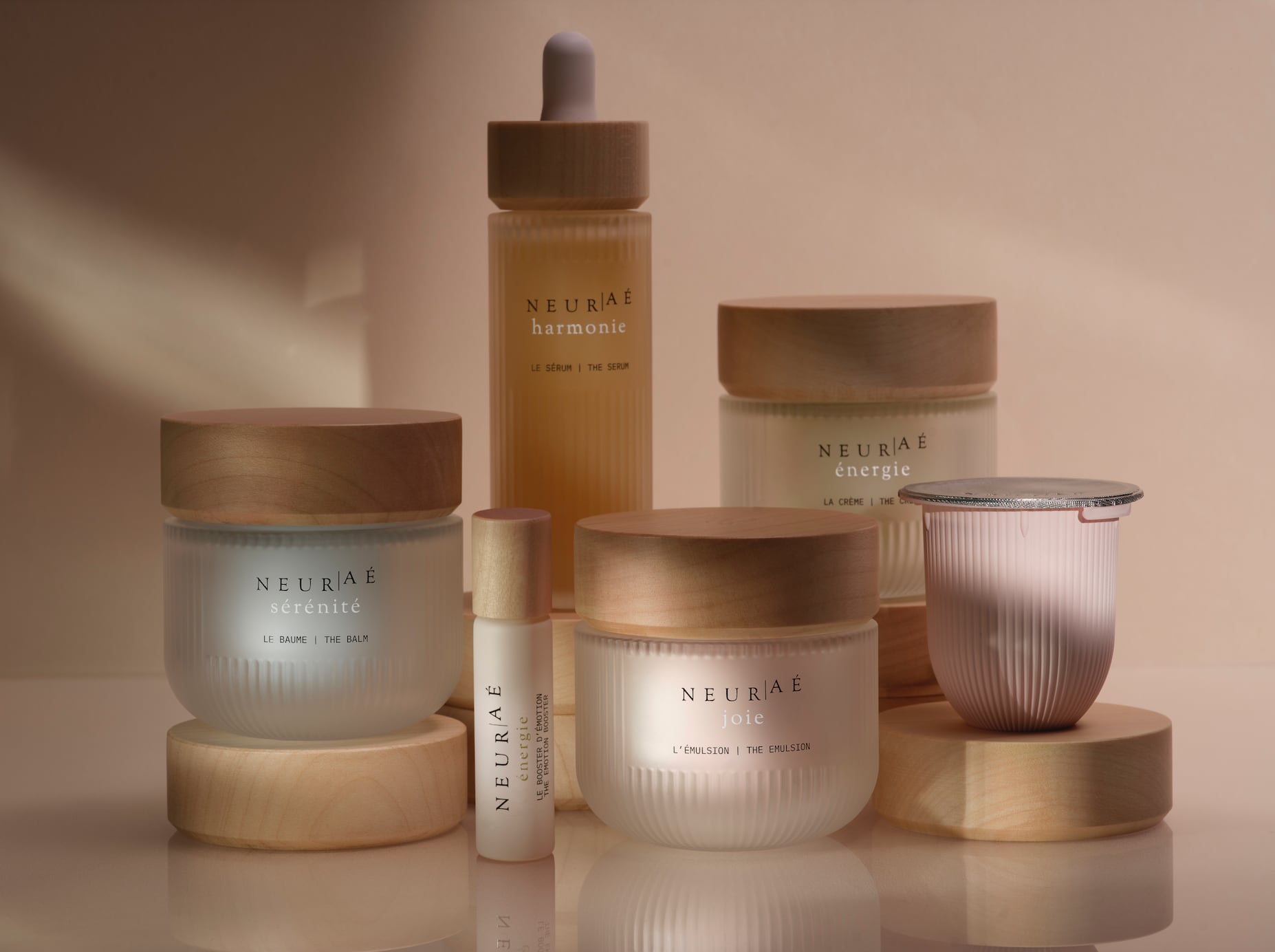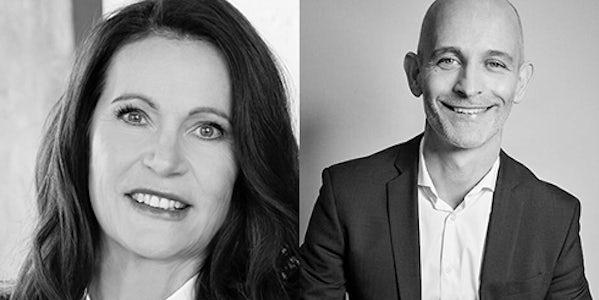Why Sisley Is Launching Its First New Brand Now
PARIS – Some might call Neuraé, a new seven-piece skincare line that leans on neuroscientific research, a mix of beauty and brains.
The brand is produced by Sisley, the family-owned beauty company known for luxury skincare, makeup and fragrance products like its Black Rose Cream Mask, $200, and the ultra-premium, anti-ageing Supremÿa line, which includes a $940 night cream.
Neuraé, which debuts on April 2 in France, Italy, the UK and US, is a more moderately priced line, retailing from $65 to $195. Distribution of the line will be through e-commerce, alongside Sisley’s existing core partners like Bergdorf Goodman, Sephora and Neiman Marcus.
Some parts of the brand’s attempt at the mind-skin connection can be easily observed – blushing or flushing of the cheeks when embarrassed or angry, or the feeling of prickling heat when panicked. Research to further understand how emotions such as calmness (and conversely, stress) show up on the skin have become of particular interest to beauty companies and consumers alike.
Despite the movement’s burgeoning popularity, Philippe d’Ornano, Sisley’s president and second-generation leader, said, “We didn’t look too much at the market … we look at how we can do better.”
The line has been in the works for 10 years, per d’Ornano, with the Sisley in-house development team carefully formulating – and re-formulating – as their research advanced.
The range is divided into four sub-lines, Harmonie, Énergie, Joie and Sérénité, and claims to use both scent and texture to deliver mood-boosting, and thus, skin-boosting results. Core products include roll-on scented oils, a serum and refillable face cream.
The Family Jewels
Neuraé does not share the renowned Sisley brand name, nor will it be marketed with any parent company connection. d’Ornano said that while launching the brand without the halo effect of the Sisley name will create some challenges, he didn’t want to cause confusion; either for customers who already shop with Sisley, or the sales staff who are tasked with selling either line.
”We try to keep the simplicity in each of our brands, so they’re easy to explain,” he said. “[It will be] complicated for us to launch a new brand and create new alliances … but it will maybe let us touch new customers, too.”
Neuraé is the first time the company has launched a standalone offshoot. In 2018, it added a hair care line, Hair Rituel by Sisley – featuring a $110 hairspray – which d’Ornano said was a gamble, given that by their estimates, hair care made up only two percent of sales in specialty retail stores. “Now, it’s developing very fast,” he said.
France is home to several family-owned beauty brands, including Clarins, still owned by the Courtin-Clarins family, and Caudalie, owned by founders Mathilde and Bertrand Thomas. All three have made beauty investments, and d’Ornano said it is in a position to buy companies should they choose. Its family office has a mix of investments in energy and real estate as well.
Launching the brand separately also prevents any dilution of the valuable Sisley name. The brand took sales of €930 million ($1 billion) last year, with skincare accounting for around 70 percent of revenue. It has upheld its reputation for being expensive but worth it in beauty circles: on Reddit’s dedicated luxury skincare forum, /r/SkincareAddictionLux, one user said of Sisley, “I have been trying for months to find an alternate that works just as well but for cheaper…..and none have even compared.”
Sisley was launched by Franco-Polish nobles Isabelle and Hubert d’Ornano in 1976 – Hubert’s father previously co-founded Lancôme before its sale to L’Oréal. Since then, the family has run the business as a private enterprise, with Philippe and his sister Christine, who serves as global vice president, leading operations. Philippe d’Ornano said 95 percent of skincare and 60 percent of makeup is produced with in-house facilities; all of Sisley’s formulas are developed at its laboratory near Paris.
A Quieter Luxury
Despite Sisley’s high price points and swanky packaging, “luxury” is a term d’Ornano says he is not very comfortable with. “To me, you can do a luxury handbag,” he said. “My customer can perceive [Sisley] as a luxury … but if I can make a product that is less expensive, I’m happy to do it,” he said. Triple-digit price tags for products as quotidian as make-up remover in Sisley’s core line may raise eyebrows, but d’Ornano explains this by saying their formulators take a different approach.
Instead of starting out with a product concept that includes the price, the R&D team works backwards when it comes to development, essentially having carte blanche.
Their elastic approach to budget and price is unusual – least of all because very few beauty companies have enough cash, cache and vertical integration to operate in such a manner. Having an established prestige brand also grants it freedom to price things as high as they need – there’s no need to try and premiumise when you already have a customer base comfortable with paying almost $1,000 for night cream.
d’Ornano said he has no sales target for Neuraé; instead, he hopes “people will like it and buy it more than once.” He plans to take the launch slowly, and notes that while Sisley is active on social platforms like Instagram and TikTok, most of their referrals still come from word of mouth or store associates.
Ultimately, the family will call the shots. “For example, with Neuraé, we have [a marketing plan],” said d’Ornano. “But I can break it whenever I want.”


